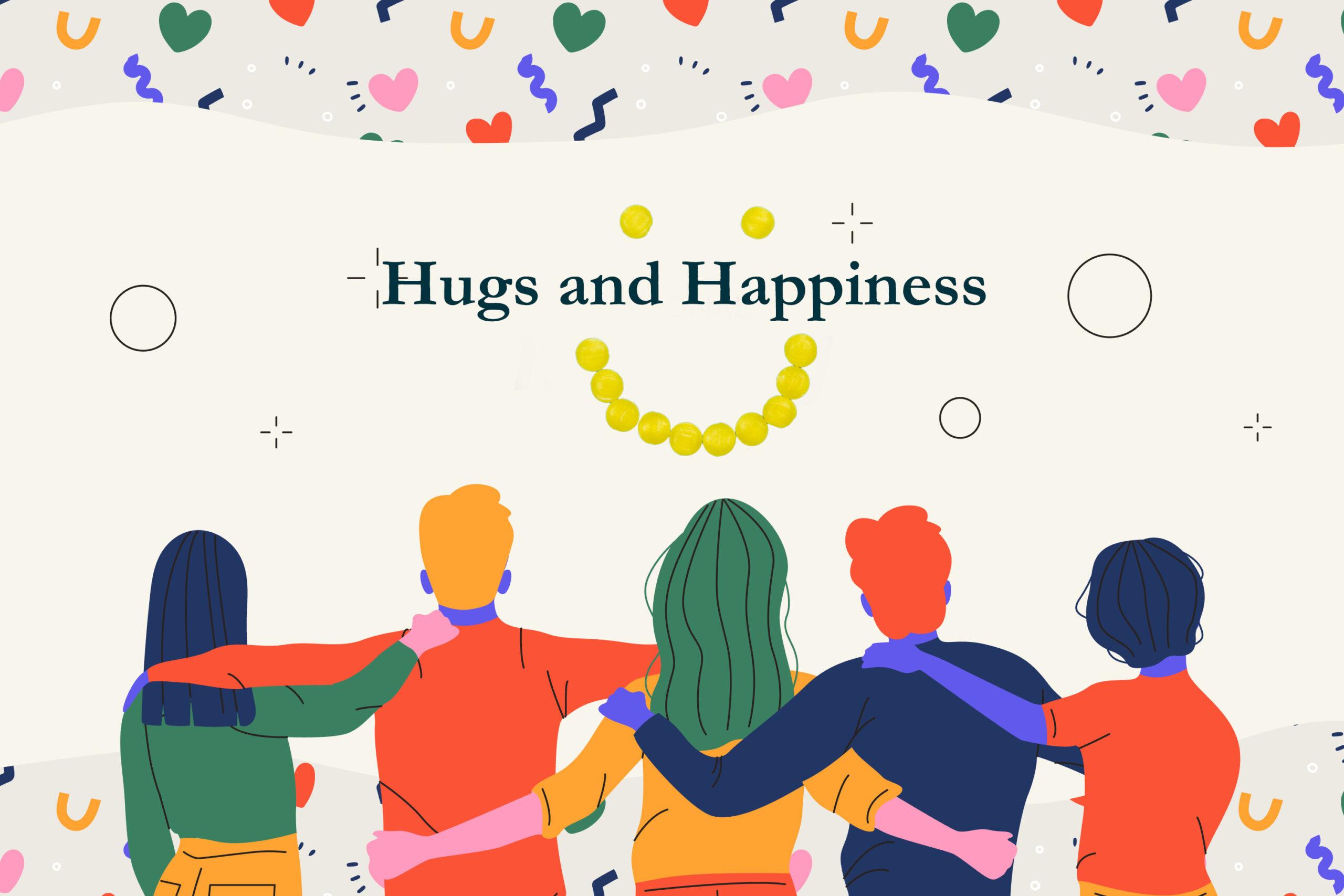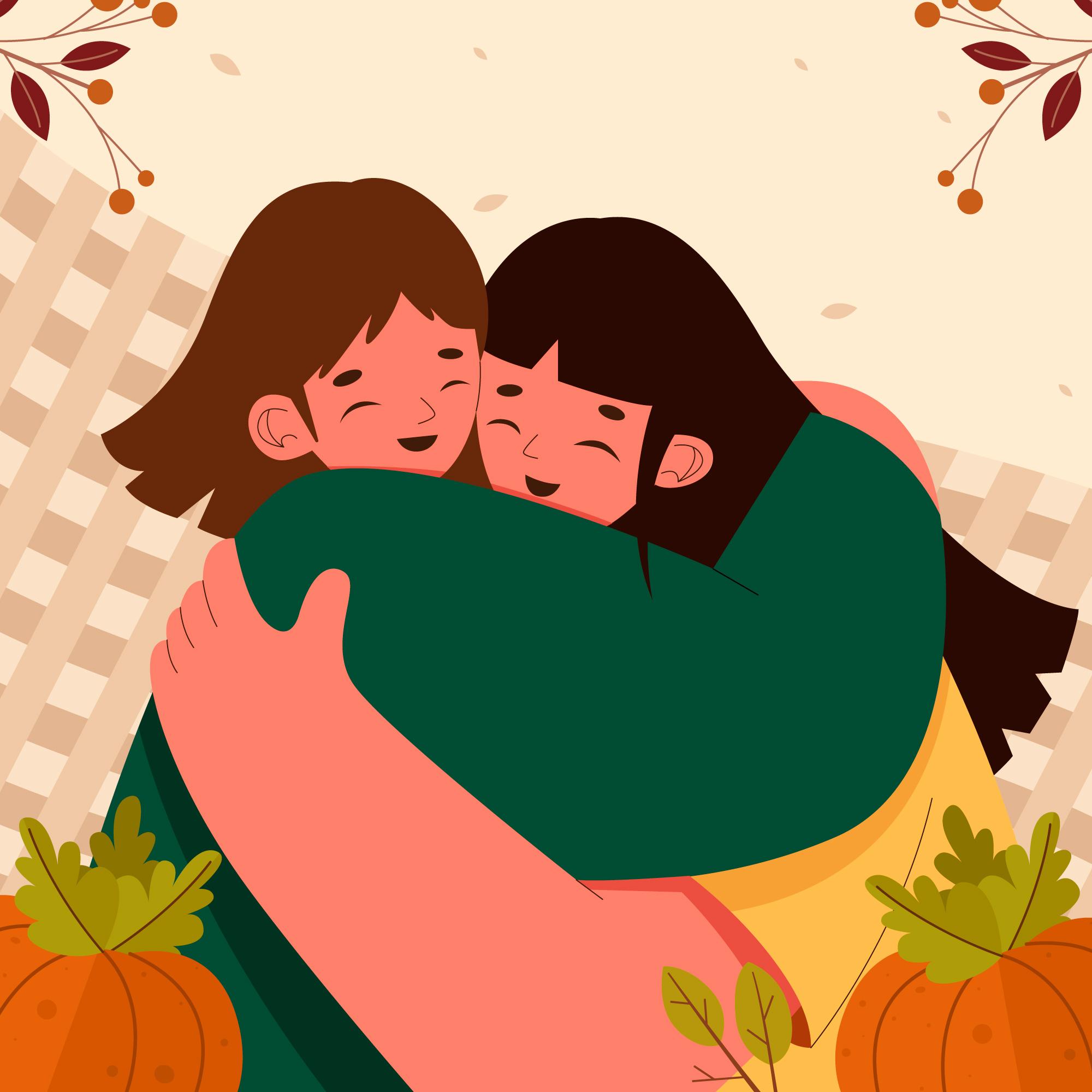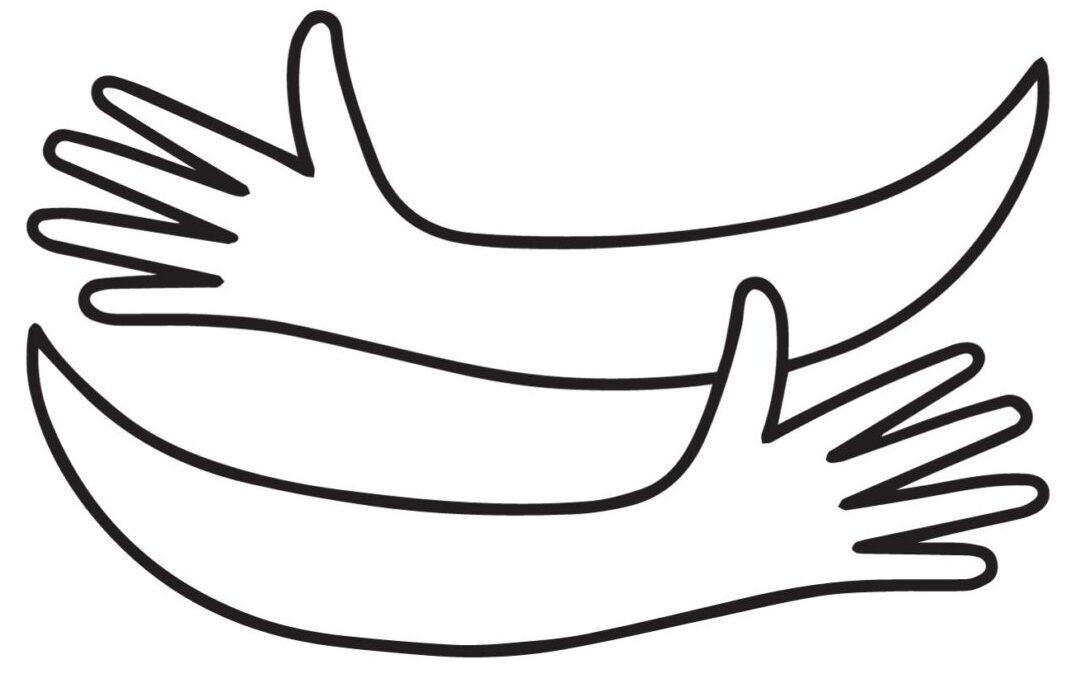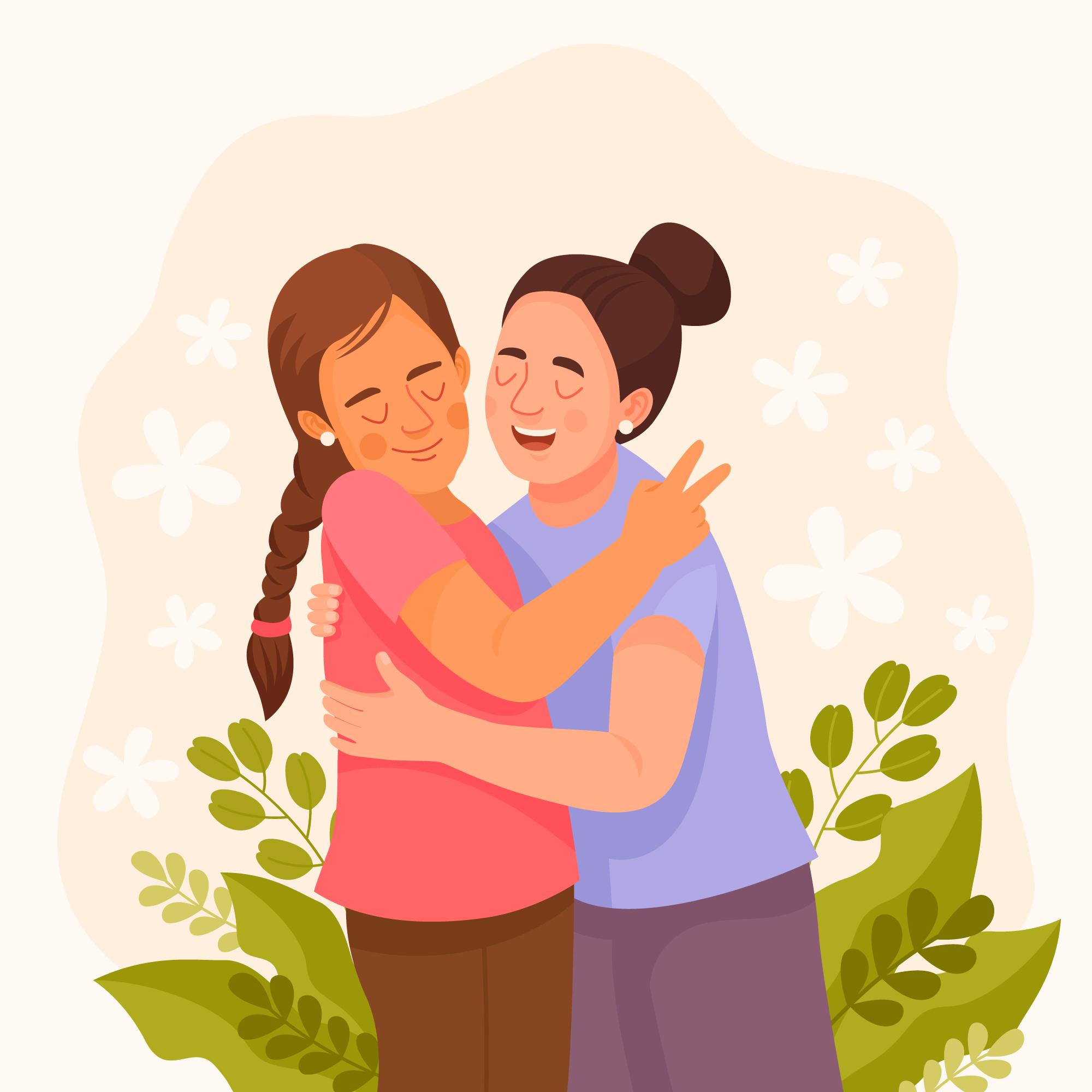Cultivating Happiness every day with hugs and happiness
Hugs support happiness
A hug means you release a feeling about someone. It’s love, care, or concern—not only love relationships, but even every relationship is close to you. while working in a wordless way, only taking action and embracing it. In this silent whisper, “I am here for ourselves.”. Takes a chill pill. Hugs even give cortisol, the stress hormone, a run for its money. According to a study from the University of North Carolina, a good hug can soften the spike in blood pressure and heart rate, especially in stressful situations.
Hugs for moments of joy or sadness. Sometimes it’s just a way to say, “Hey, you matter to me.” Be the person who isn’t afraid to spread happiness with an open heart and outstretched arms. Make every hug count as if it’s your first, and savour each one like a piece of grandma’s laddu. The meal from your mother tastes equally as good as your hugs and joy.
Hug and Happiness Hormones
Every time you share a hug, it’s like giving your brain and body a mini wellness retreat. Various pieces of research have demonstrated the multifaceted benefits of hugging, from releasing happiness hormones to bolstering our immune system—it’s all in the power of a hearty embrace! ” Hold up, dopamine? Dopamine isn’t just another city on the brain map. Nope, it’s your body’s own personal happiness dealer, stimulating those feelings of pleasure, motivation, and reward. It’s like a chemical that senses happiness.
When we hug someone, oxytocin, aka the ‘cuddle hormone’, shoots up, and cortisol, the’ stress hormone’, takes a nosedive. This hormonal cocktail leads to feelings of happiness and relaxation.
Hugs in Medicine: The Healing Touch
More and more, doctors are realising that hugs can help patients feel better. Hugs are being used to help people heal in a variety of ways, from easing anxiety in people before surgery to improving mental health in long-term care facilities. Doctors are looking into how the human touch can work with standard medical treatments to create more comprehensive and patient-centred methods. According to Virginia Satir, a family therapist, “We need four hugs a day for survival. We need 8 hugs a day for maintenance. We need 12 hugs a day for growth.” (www.forbes.com) When you take hugs as medicine, you release happiness hormones. Hugs are medicine, but the reward is happiness.
Strengthening Bonds Through Hugs
Hugs are not merely acts of individual affection; rather, they are potent instruments that can be used to construct and fortify relationships. The act of embracing, whether it be between members of the same family, between friends, or between lovers, helps to cultivate a sense of closeness and strengthens emotional relationships. There is a language that is not spoken that conveys love, caring, and support, which contributes to the richness of the fabric of our social connections.
Hugs as a Natural Pain Reliever
Understanding how hugs trigger the release of endorphins When you feel a comforting squeeze from a hug, your brain releases endorphins. They are your body’s natural painkillers and create a pleasant sensation throughout your body. They’re your body’s homemade morphine!
Laying out anecdotal and researched evidence of hugs reducing pain A study by UCLA’s Pain Control Unit found that children who received hugs right after a painful procedure reported less pain than kids who didn’t get hugged. Talk about superpowers!
Discussing how hugs may substitute for or complement traditional pain management methods: Imagine if a healthy dose of hugger could replace that aspirin. It’s happening already in some holistic zones of pain control, where cuddling is encouraged as a complementary therapy.
The Importance of Consent in Hugging
Just because we are waxing lyrical about hugs doesn’t mean everyone is on board the “hug train.” Let’s understand why.
Emphasizing respect and consent in the act of hugging Hugs are intrinsically intimate. Hence, it’s vital to ensure the other person is comfortable with it and consents to it. After all, nothing’s cringier than a one-sided hug!
Discussing ways to ensure comfort in hugging among different people There’s no secret recipe. Just be aware of the other person’s comfort level. Be sensitive. And above all, if unsure, simply ask if it’s okay to hug. Keep in mind that it’s perfectly fine if they decline.
Suggesting alternatives for individuals who are not comfortable with hugging For those uncomfortable with the full-body hug, alternatives like a pat on the back, a handshake, or even a fist bump can convey a similar sentiment.
Conclusion: Embrace hugs and Happiness
As we navigate the complexities of modern life, the power of hugs stands out as a beacon of simplicity and efficacy. Beyond the warmth of the moment, hugs contribute to happiness, stress reduction, and overall health. They bridge gaps in relationships, provide therapeutic relief, and serve as a daily ritual for well-being.
-
Are there any downsides to hugging?
Like most good things, hugging too has its nuances. While it is generally a spring of positivity, respecting personal boundaries, cultural comfort, and timing are critical to ensuring the experience is indeed a happy one.
-
What are alternatives for individuals who are not comfortable hugging?
If you’re not particularly keen on hugging, that’s no problem, mate! There are countless ways you can generate these happiness hormones—from high-fives, hand-holding, a pat on the back, or even a kind word or two.
So, folks, let’s spread the hugs and make the world a happier place! One squeeze at a time. -
What is the science behind the feeling of happiness when hugging?
When we hug someone, oxytocin, aka the ‘cuddle hormone’, shoots up, and cortisol, the’stress hormone’, takes a nosedive. This hormonal cocktail leads to feelings of happiness and relaxation.
-
How does hugging contribute to mental and physical health?
Apart from a release of feel-good hormones, hugging helps lower heart rate and blood pressure and contributes to reducing symptoms of mental health disorders such as anxiety and depression.
-
What does a hug symbolise in human interaction?
A hug is a universal gesture representing warmth, affection, and connection. It symbolises care, support, and the shared human experience.
-
Are there different types of hugs, and do they convey different meanings?
Yes, there are various types of hugs, each conveying distinct emotions. A tight squeeze might signify comfort, while a gentle embrace could express empathy. Context, duration, and intensity play roles in interpreting the nuances of a hug.






Leave a Reply